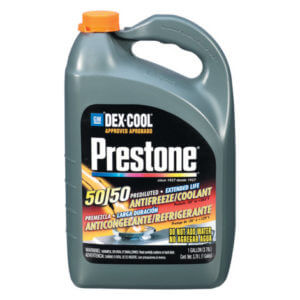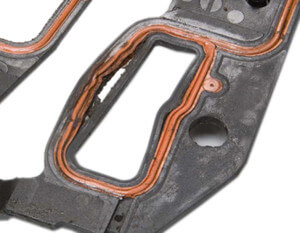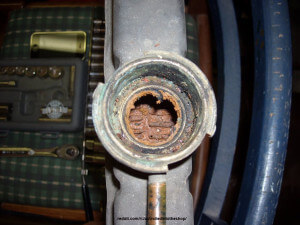What is Dex-Cool coolant?
Dex-Cool® coolant
Dex-Cool coolant is a registered trademark for a coolant used in  GM vehicles. Dex-Cool coolant is based on an organic acid technology that provides longer life than traditional silicate based formulas. In addition to providing protection against freezing, Dex-Cool provides anti-corrosion and anti-foaming additives to prevent galvanic action and corrosion from forming in a vehicle’s cooling system.
GM vehicles. Dex-Cool coolant is based on an organic acid technology that provides longer life than traditional silicate based formulas. In addition to providing protection against freezing, Dex-Cool provides anti-corrosion and anti-foaming additives to prevent galvanic action and corrosion from forming in a vehicle’s cooling system.
Is Dex-Cool bad?
GM switched over to Dex-Cool in their engines and shortly thereafter, the intake manifold gaskets in those same GM vehicles failed at an astounding rate. Class action lawsuits were filed and GM offered settlements. After that, Dex-Cool gained a horrible reputation as a bad coolant and many shops recommended removing Dex-Cool and refilling with another type of long lasting coolant.
Does Dex-Cool cause gasket damage?
No. It’s true the intake gaskets in GM vehicles failed at an extremely

The hole in this gasket was NOT caused by Dex-Cool. It’s a faulty design.
high rate. However, the root cause of the intake manifold gasket failure was the poor design of the gasket and not the Dex-Cool. Specifically, GM changed their intake manifold gaskets to a plastic carrier with silicone sealing strips around the edge. Over time, the anti-corrosion additives in DexCool softened the plastic, causing coolant to leak into the crankcase or out of the engine. Some have claimed that chemicals in the Dex-Cool softened the plastic, eventually eating through it and causing the leak.
The Dex-Cool coolant may have reacted with the plastic. But is that the fault of Dex-Cool or the use of an inappropriate type of plastic?
History proves that Dex-Cool does not damage gaskets
Even though everyone blamed Dex-Cool as the cause of gasket damage, history has proven that the leaks were caused by faulty gasket design. GM went through several rounds of gasket redesign before coming up with a plastic formulation that worked. GM continues to use Dex-Cool in all factory fills and dealers are required to use Dex-Cool when performing service. After the gasket redesign, failures plummeted.
Does Dex-Cool cause sludge?
It can. Dex-Cool can react with air and iron to oxidize to form “sludge.” The coolant itself doesn’t cause the sludge. It’s the fact that the low coolant level exposes the bare cast iron to air that causes it to rust that the problem. If you fill with DexCool and maintain the coolant level in your cast iron engine, you won’t develop sludge. However,

This is what neglect looks like
if you allow your cast iron engine to run when it’s low on coolant, it’ll rust and cause sludge. The cause is owner error, not Dex-Cool.
©, 2017 Rick Muscoplat
Posted on by Rick Muscoplat
